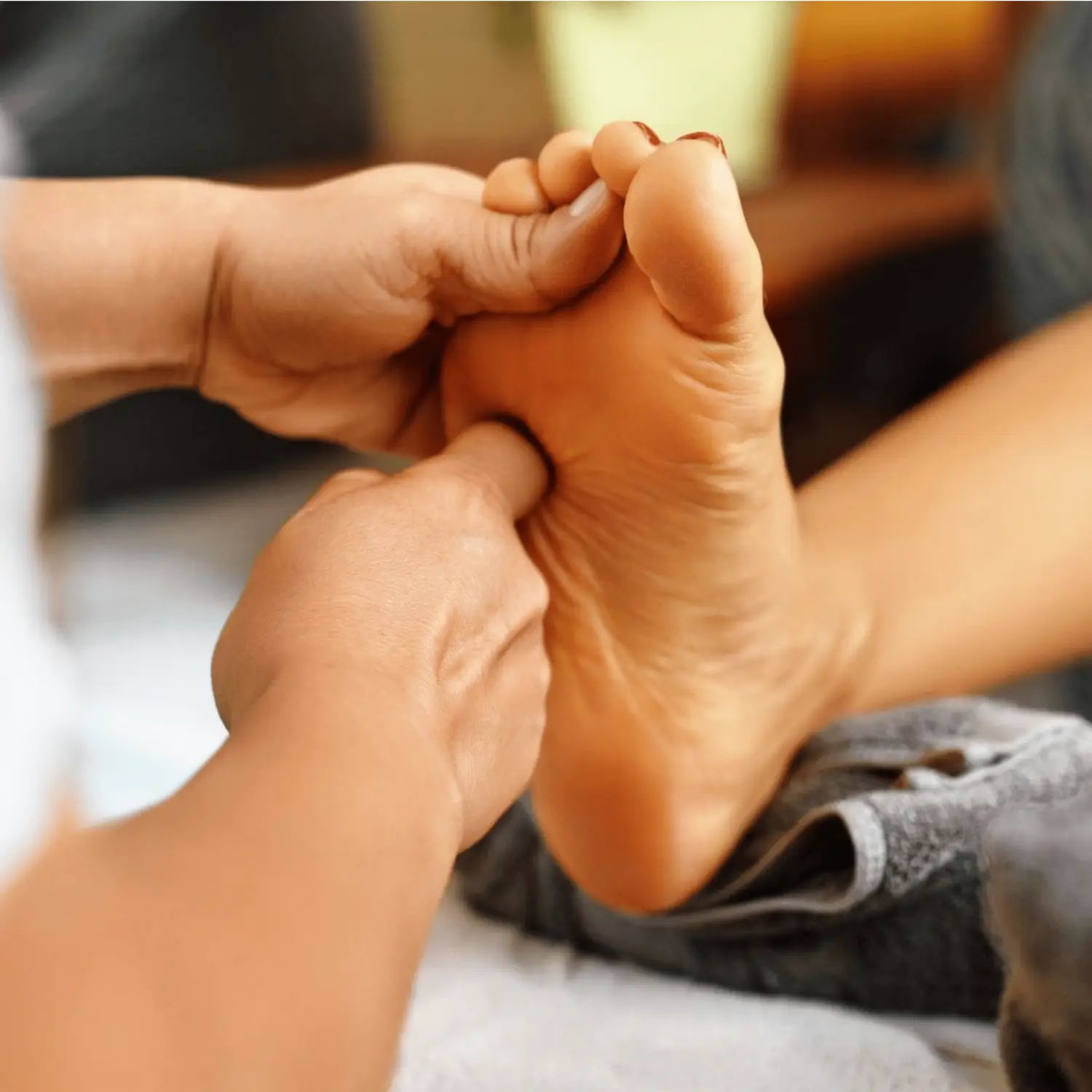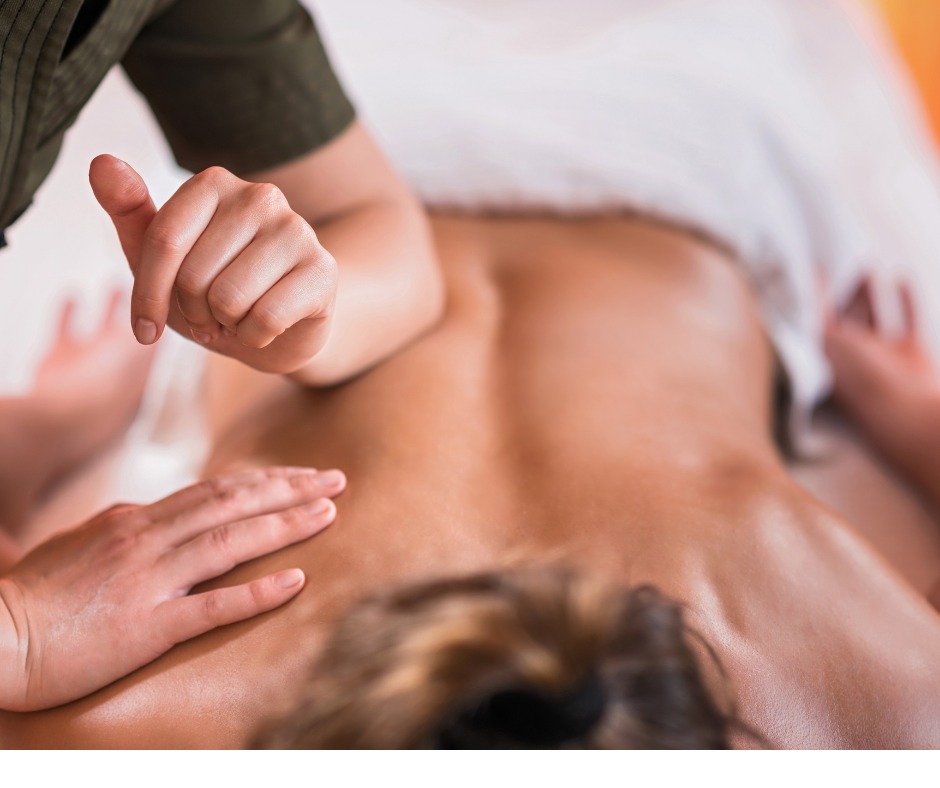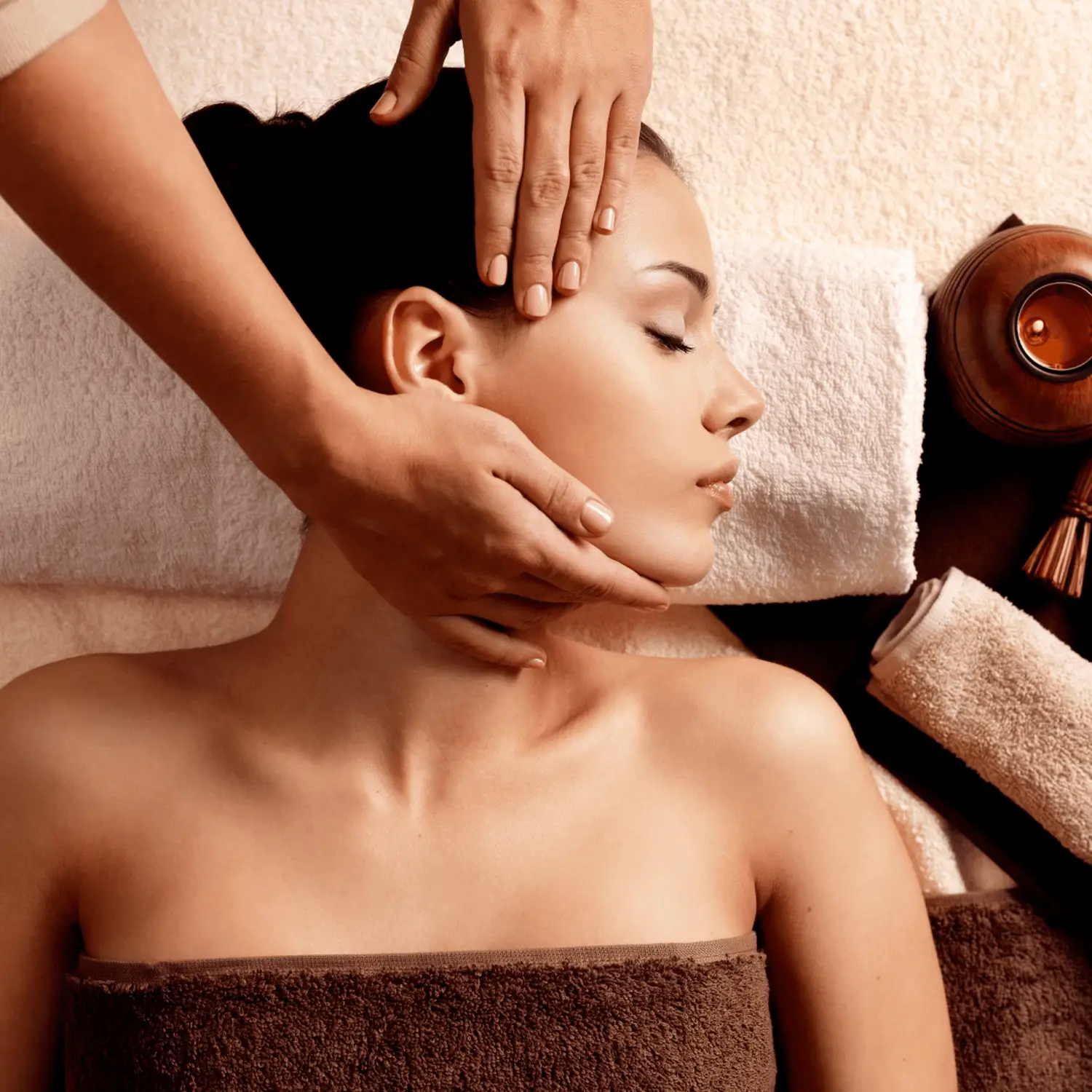Reflexology stimulates the nervous system, which helps to promote relaxation. It helps to release endorphins, which are the body's natural pain relievers and also have mood-boosting effects. Reflexology also prompts your body to reduce cortisol levels. The release of endorphins together with lower cortisol levels have a noticeable impact on stress, anxiety and even depression.
Another way reflexology works its magic is by enhancing blood circulation. By stimulating those reflex points, it encourages better blood flow throughout your body, delivering oxygen and nutrients where they're needed most. This improved circulation helps your body function more efficiently, reducing the physical symptoms of stress.
By targeting specific reflex points on the feet, hands, or ears, reflexology reduces the sensation of pain associated with headaches and migraines.
Tension in the muscles of the neck, shoulders, and scalp is a common cause of headaches. Reflexology helps to release tension in these areas, promoting relaxation and reducing the likelihood of tension headaches.
Poor circulation is another factor that contributes to headaches and migraines by depriving the brain of oxygen and nutrients. Reflexology encourages better blood flow throughout the body, including to the head, which helps to relieve headaches and prevent them from occurring.
Headaches and migraines are also caused by imbalances in the body's energy flow. By rebalancing this energy you will alleviate these symptoms.
By applying pressure to specific reflex points, reflexology aims to calm the nervous system which in turn promotes better sleep quality.
Also, by calming the nervous system, reducing stress levels, and balancing your body's energy flow reflexology promotes better sleep quality.
There’s a specific point on the base of the foot known as the “insomnia point.” For the ones experiencing sleep difficulties, this point may be sore when pressed. Massaging this point can help induce sleep.
The solar plexus is a crucial reflex point in reflexology. It’s like an “abdominal brain,” intricately connected to major abdominal organs and the autonomic nervous system. By stimulating the solar plexus reflex, we influence the entire digestive system.
The solar plexus reflex helps with stress relief and may ease symptoms of hiatal hernia, acid reflux, heartburn, and pain.
Reflexology offers a foot map to your digestive system, with specific zones for the mouth, esophagus, stomach, liver/gallbladder, pancreas, and small intestine. By working on these zones we allow your body to deal with your digestive problems.
Since stress negatively impacts digestion, leading to symptoms like bloating and stomach pain, by alleviating stress we positively impact your digestive system.
Asthma: Reflexology helps manage asthma by reducing stress and promoting relaxation. By targeting reflex points related to the lungs and respiratory system it improves breathing and reduces the frequency and severity of asthma attacks. Additionally, the release of endorphins alleviates the discomfort associated with asthma symptoms.
Sciatica: Being characterized by pain that radiates along the sciatic nerve, sciatica can be incredibly debilitating. Reflexology helps by targeting reflex points associated with the sciatic nerve and the muscles and tissues surrounding it which reduces pain, inflammation, and muscle tension, providing relief from sciatica symptoms.
ADHD (Attention-Deficit/Hyperactivity Disorder): By targeting reflex points associated with the nervous system and brain function, reflexology helps to improve focus, concentration, and cognitive function.
Detoxification: Reflexology encourages the body’s natural detoxification processes. Improved lymphatic drainage and elimination of toxins contribute to overall well-being.
Other Chronic Pain Conditions: Reflexology provides relief from various chronic pain conditions, including fibromyalgia, neuropathy, and chronic fatigue syndrome (CFS).
Reflexology can also help with problems related to immune function, pain management, hormonal balance, energy levels and much more.
This ancient practice involves applying pressure to specific points on the feet that correspond to different organs and systems of the body. By stimulating these reflex points, foot reflexology aims to promote healing, relaxation, and overall well-being. It's believed to help balance the body's energy flow and alleviate various health issues, from stress and anxiety to digestive problems and chronic pain.
Our sports massage offers evidence-based therapy for athletes and anyone with muscle tension from daily life. Whether training hard or facing long hours at a desk, our tailored massage eases aches, improves mobility, reduces stress, and helps everyone recover, perform, and feel their best.
Originating in Japan, Kobido is a traditional facial massage technique that focuses on stimulating acupressure points, lymphatic drainage, and muscle relaxation. Unlike foot reflexology, which targets specific points on the feet, Kobido involves gentle yet firm massage strokes applied to the face, neck, and décolletage. It aims to improve circulation, tone facial muscles, reduce wrinkles, and promote a youthful glow.
Also known as Facial Reflexology or Multireflexology, Dien Chan is a Vietnamese technique that involves stimulating reflex zones on the face using specialized tools like multireflex tools, crystals, or fingers. Similar to foot reflexology, Dien Chan operates on the principle that different areas of the face correspond to specific organs and systems of the body. By applying pressure or massage techniques to these reflex zones, Dien Chan aims to restore balance, relieve pain, and enhance overall health and well-being.
In essence, while foot reflexology focuses on the feet, Kobido targets the face, and Dien Chan concentrates on facial reflex zones. Each technique offers unique benefits and approaches to holistic health and wellness, catering to different needs and preferences. Whether you seek relaxation, rejuvenation, or relief from various ailments, my services can work wonders for your body, mind, and spirit.
Our Address: 236 Ordsall Ln, Salford M5 3NE
Phone Number: 01613274304



